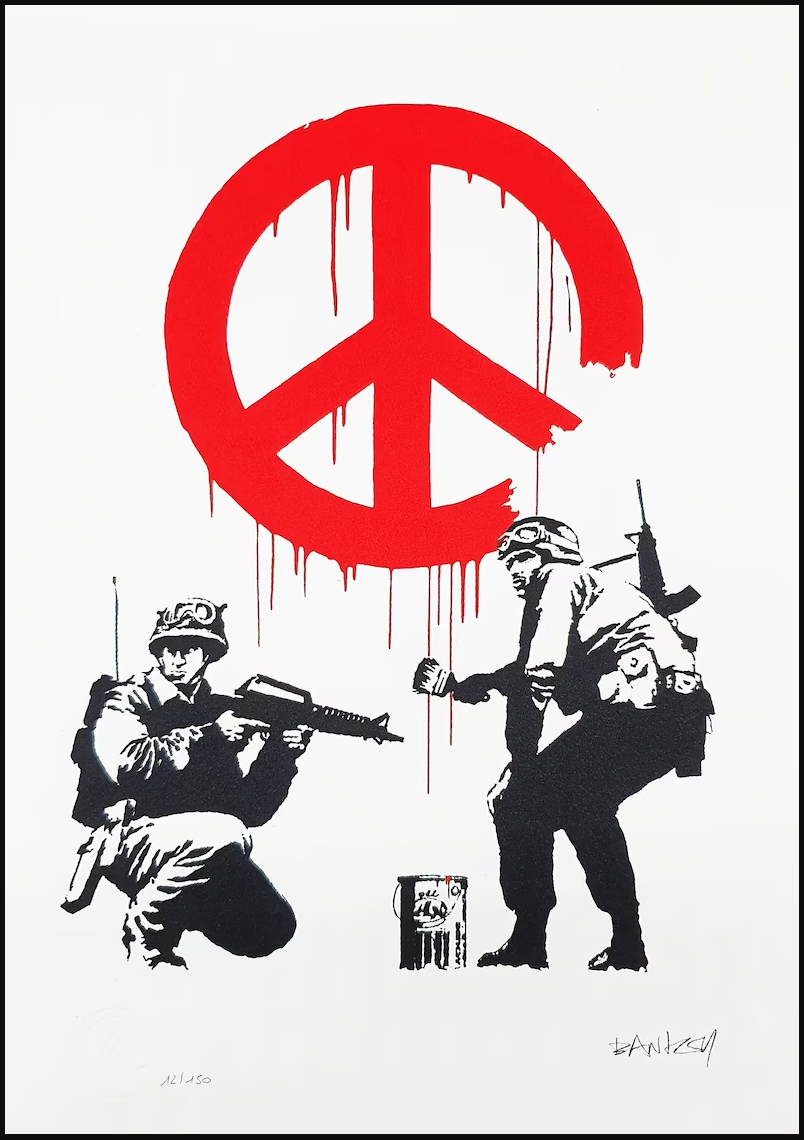World peace: Difference between revisions
Amwelladmin (talk | contribs) No edit summary |
Amwelladmin (talk | contribs) No edit summary |
||
| Line 7: | Line 7: | ||
We might not like the idea of conflict, but isn’t its ''absence'' even more horrifying? | We might not like the idea of conflict, but isn’t its ''absence'' even more horrifying? | ||
World peace — ''the total absence of conflict'' — implies a settled ''consensus''. It takes as a given that all mysteries have been resolved or at any rate agreed upon, that all possible questions have catalogued, taxonomised and satisfactorily answered, that all [[unknowns]] have been eradicated. World peace implies ''total homogeneity of need, want and value''. There are no inventions left, no efficiencies to be gained, no services to be improved, no sunlit uplands to move towards. | World peace — ''the total absence of conflict'' — implies a settled ''consensus''. It takes as a given that all mysteries have been resolved or, at any rate, agreed upon, that all possible questions have catalogued, taxonomised and satisfactorily answered, that all [[unknowns]] have been eradicated. World peace implies a ''total homogeneity of need, want and value''. There are no inventions left, no efficiencies to be gained, no services to be improved, no sunlit uplands to move towards. | ||
World peace allows of no tribes, no cultures, no in-groups; no partisanship, no contest, no sport, no allegiance, no competition for resource. It requires no hesitancy, no uncertainty, no opportunity | World peace allows of no tribes, no cultures, no [[diversity]], no in-groups; no partisanship, no contest, no sport, no allegiance, no competition for resource. It allows no protection, no defence, no pre-emption, no optimisation. | ||
It implies no ''love'', for love implies preferment. Irony: taken to their logical conclusion, love and peace are mutually exclusive. | |||
Peace requires no hesitancy, no uncertainty, no opportunity to improve: the objects of universe are mapped, their infinity of trajectories mapped, calculated and projected to the end of time; that we are disempowered automatons on strict deterministic rails; we know and accept and will doggedly do that, and only that which is required to stay upon them. | |||
There are no disputes, doubts, disagreements or ''contrarians''. If one were even possible a contrarian would simply be ''one who is wrong''. But a contrarian would not be possible. ''Error'' would not be possible. Indecision would not be possible. If it were possible to err, it would be possible to dispute the consensus, and that would create ''conflict''. | There are no disputes, doubts, disagreements or ''contrarians''. If one were even possible a contrarian would simply be ''one who is wrong''. But a contrarian would not be possible. ''Error'' would not be possible. Indecision would not be possible. If it were possible to err, it would be possible to dispute the consensus, and that would create ''conflict''. | ||
Revision as of 15:01, 25 February 2023
|
Social media genius asks, “What is the biggest impediment to world peace at the moment?”
Predictable enough answers: greed, ego, colonialism, the Great Satan, idiocy, defence companies, toxic ideologies, the military-industrial complex, the lack of respect, the establishment —
But isn’t the answer, the hope for something better?
We might not like the idea of conflict, but isn’t its absence even more horrifying?
World peace — the total absence of conflict — implies a settled consensus. It takes as a given that all mysteries have been resolved or, at any rate, agreed upon, that all possible questions have catalogued, taxonomised and satisfactorily answered, that all unknowns have been eradicated. World peace implies a total homogeneity of need, want and value. There are no inventions left, no efficiencies to be gained, no services to be improved, no sunlit uplands to move towards.
World peace allows of no tribes, no cultures, no diversity, no in-groups; no partisanship, no contest, no sport, no allegiance, no competition for resource. It allows no protection, no defence, no pre-emption, no optimisation.
It implies no love, for love implies preferment. Irony: taken to their logical conclusion, love and peace are mutually exclusive.
Peace requires no hesitancy, no uncertainty, no opportunity to improve: the objects of universe are mapped, their infinity of trajectories mapped, calculated and projected to the end of time; that we are disempowered automatons on strict deterministic rails; we know and accept and will doggedly do that, and only that which is required to stay upon them.
There are no disputes, doubts, disagreements or contrarians. If one were even possible a contrarian would simply be one who is wrong. But a contrarian would not be possible. Error would not be possible. Indecision would not be possible. If it were possible to err, it would be possible to dispute the consensus, and that would create conflict.
Lasting world peace implies, in short, the end of days.
